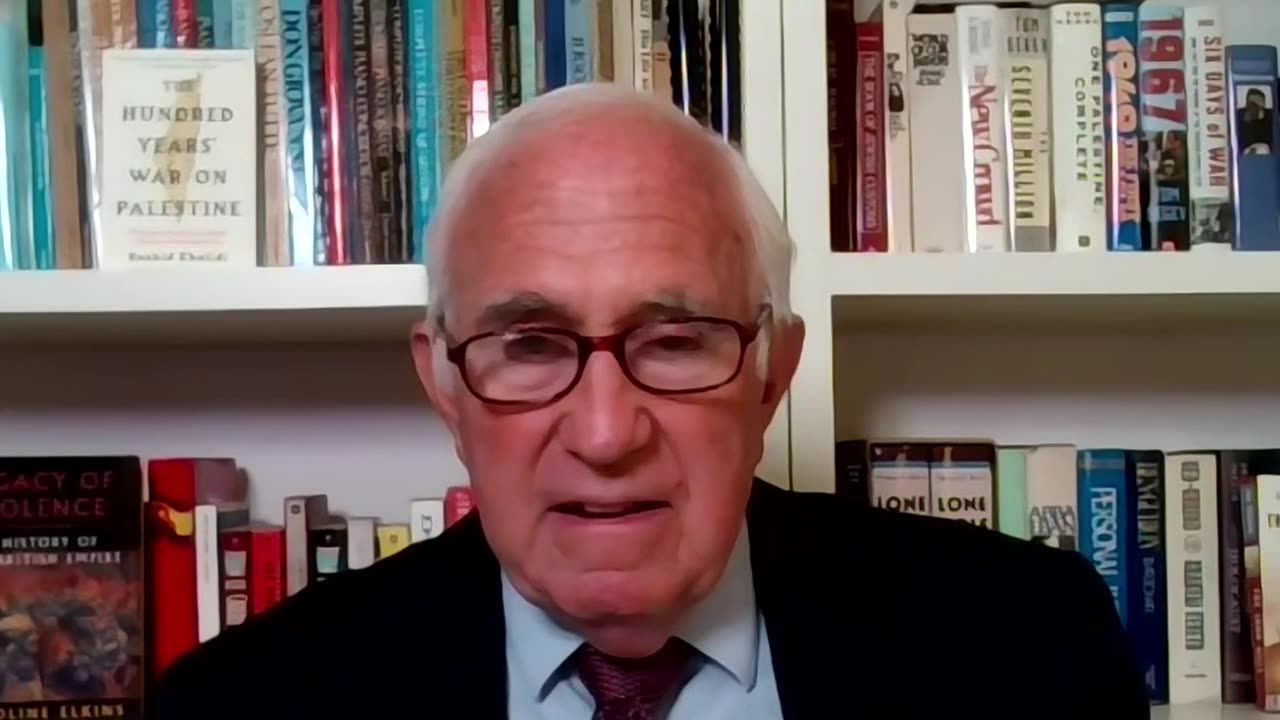Premium Only Content

Creating a New Security and Development Architecture Out of Disorder
The first two weeks of high-level speeches at the UN General Assembly has come to a close. Yet, the question still remains, whether humanity has the moral fitness to survive. The UNGA meeting, according to China’s Global Times, was an intense collision between nations on the matters relating to the unspeakable genocide taking place in Gaza, NATO’s continuing war of aggression in Ukraine against Russia, and the need for a global architecture which ensures all nations’ path to security and development.
Yesterday, Chinese Premier Li Qiang gave an important reality check on the status of international law in world affairs, given Israel’s actions in the Gaza Strip and the lack of supposed law-abiding nations in the West to deter Israel. He warned that, “should the era of the law of the jungle return and the weak be left as a prey to the strong, human society would face even more bloodshed and brutality…. Humanity has once again come to a crossroads.”
Likewise, Russian Foreign Minister Sergey Lavrov told a meeting of G20 foreign ministers that the refusal among the Collective West “to adhere to the principles of the [UN] Charter reveals neocolonial ambitions, fueling global instability and multiplying regional conflicts.”
While the Global South is taking responsibility for restoring lawfulness and principles to international affairs through prioritizing mutually beneficial relations with other nations, while committing to economic development through investments in energy, infrastructure, science, and culture, the trans-Atlantic sector of “civilized” countries is being isolated more and more and on the brink of financial disintegration, which would be through the collapse of $2 quadrillion of derivatives assets and financial speculation.
What can stop such a sudden collapse? The Hobbesian-like struggle between nations, and the reduction of international law to the “law of the jungle,” was explicitly rejected in the U.S. Declaration of Independence. This was relevantly pointed out by Indonesian President Prabowo Subianto in his remarks to the UNGA on Tuesday. Like one of his predecessors, Sukarno, who had explicitly referenced the American Revolution as an anti-colonial revolution which gave hope to nations striving for their independence, Subianto recalled the better traditions of the West, as if showing a mirror. He said, “It is indeed a great honor to stand in this august General Assembly Hall, among leaders who represent almost all of humanity. We differ in race, religion, and nationality, yet we gather together as one human family. We are here first and foremost as fellow human beings—each created equal, endowed with unalienable rights to life, liberty, and the pursuit of happiness. The words of the U.S. Declaration of Independence have inspired democratic movements across continents—including the French Revolution, the Russian Revolution, the Chinese Revolution, and Indonesia’s own journey to freedom. It also gave birth to the Universal Declaration of Human Rights adopted by the UN in 1948. ‘All men are created equal’ was the creed that opened the way to unprecedented global prosperity and dignity.”
Will the people of the United States appeal to the Global Majority through the Declaration of Independence? How many people in the U.S. presently have even read that document thoroughly, or even agree with its basic principles, that all men and women, regardless of race, creed, nationality, or religion, are entitled to “Life, Liberty, and the Pursuit of Happiness?” The revolutionary movement of Benjamin Franklin, which led to a successful international conspiracy to create the first republic across the Atlantic, is what we can draw from to redeem the United States, as we approach the 250th birth of our nation.
-

TheCrucible
1 hour agoThe Extravaganza! EP: 47 with guest host MadeByJimbob (10/02/25)
2.9K2 -
 LIVE
LIVE
Kim Iversen
1 hour agoAMERICA HUMILIATED: U.S. Generals Obey Israeli Demands And Hasbara Floods Social Media
1,301 watching -

Dr Disrespect
7 hours ago🔴LIVE - DR DISRESPECT - BLACK OPS 7 MULTIPLAYER GAMEPLAY - NEW!
117K6 -
 LIVE
LIVE
MattMorseTV
1 hour ago🔴CHILLING + TALKING🔴
291 watching -
 1:26:12
1:26:12
Steven Crowder
9 hours agoThe Left is Violent (Part 2) | Change My Mind
384K650 -
 2:11:35
2:11:35
Pop Culture Crisis
3 hours agoElon Declares 'CANCEL NETFLIX' Trump Threatens Hollywood, Bad Bunny Superbowl Boycott? | Ep. 927
9.36K1 -
 3:26:05
3:26:05
Barry Cunningham
4 hours agoPRESIDENT TRUMP IS READY TO GO SCORCHED EARTH! SHUTDOWN DAY 2 BRIEFING!
17.5K20 -
 DVR
DVR
The Trish Regan Show
1 hour ago🚨Trump’s TRIUMPH! DEMS HUMILIATED on LIVE TV as SHUTDOWN BLAME BACKFIRES!
7.4K5 -
 1:39:14
1:39:14
Dr. Drew
6 hours agoFL First Lady Casey DeSantis: Florida Ending ALL Vaccine Mandates, Including For Schools w/ FL Surgeon General Dr. Joseph Ladapo & Tom Renz – Ask Dr. Drew
44.7K4 -
 23:51
23:51
Stephen Gardner
1 hour ago🔥Trump RAGES! Putin’s Plot REVEALED — Bill O’Reilly Breaks His Silence!
11.8K21
